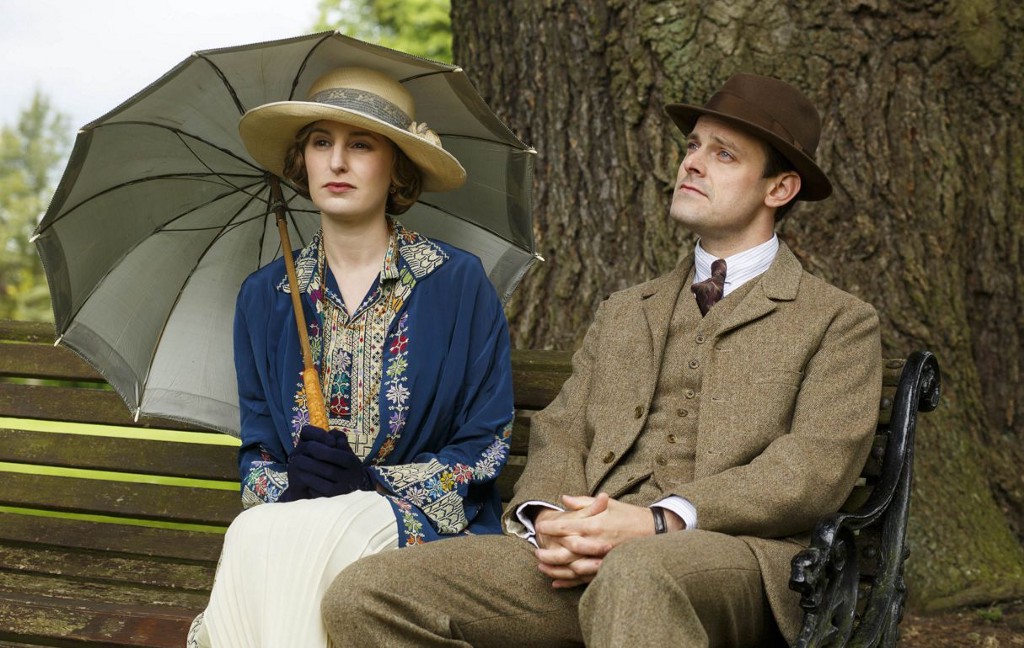“Edith Would Outrank Us All:” Let’s Talk About Downton Abbey, Season 6 Episode 8

Contains spoilers for Downton Abbey, Season 6 Episode 8. If you’ve seen other season 6 episodes, let’s keep the discussion just on episode 8 to avoid spoiling anyone else.
The penultimate episode of Downton Abbey reminds us of what we’ve known since the very beginning: the people with whom you associate matter. Your friendships, your relationships, your partnerships—the network of people in which you live, whether by choice or by circumstance, play a significant role in the opportunities available to you.
If you date the right person.
If you receive an inheritance.
If your family does not support you.
If your employer does not value you.
If your employer is preparing for layoffs.
If you know famous people who can promote your new business.
(That last one—well, we’ll get to it.)

Let’s start with family, because everything so often starts with family. Bertie’s comment that Marigold is going to have a better life because she has been adopted as the Crawleys’ ward (which, by the way, is a kind of insidious adoption myth that we can discuss in the comments—or you can go visit Catapult’s series on adoption and start there), and Edith’s decision to pull Marigold in and out of different homes before assuming that it will be best for everyone if Marigold lives with her mother while believing she is adopted.
Family can really screw things up, is what I’m saying. Family also fundamentally determines who you become. Bertie becomes a Marquess because of family. Edith loses her opportunity to marry Bertie because of family. Family decides where you live, what education you receive, what career options you might pursue, and so on—until you meet other people who open up opportunities or help you change your initial circumstances.

Molesley tells his students that education is for everyone, and that a solid education will give them a “shortcut” towards whatever they choose to become.
I’m not sure how much I believe this. Certainly Molesley wouldn’t have his job if he hadn’t been both interested in and suited for what you might call a “traditional liberal arts curriculum,” and Spratt wouldn’t have his column if he hadn’t been both literate and clever (literacy is a privilege, not a given; Andy was never taught to read or write), and Gwen wouldn’t have gotten her secretarial job if she hadn’t studied, and so on.
But Molesley’s shortcut wasn’t his education. It was the afternoon he spent at a picnic with the schoolmaster.
Gwen’s shortcut was Sybil.
Education is the foundation. People are how you get where you want to go.

It’s fascinating that the one example Downton gives of a character breaking out of his current “rank” on his own merits — without the assistance of his friends or network — is Septimus Spratt, the writer.
Do we even want to bring up how writing is an enormously popular career—and one of the fastest growing ones, especially in “new media”—because it’s an industry you can still break into? Where the pitch and the words count more than the resume, and where who you are and what you can contribute counts more than anything else?
(I mean, once you break in you quickly learn that having a network of other writers and editors matters. But that’s Phase Two of your career.)
It’s also worth noting that Spratt does not earn enough money from his column to quit his day job.

Mrs. Patmore’s bed and breakfast goes from a literal flophouse to a success because the Crawleys agree to visit her business and have their visit featured in the local paper.
She gets a career boost because she knows famous people who are willing to promote her business in the media, essentially.
This is how people think Twitter works. This is also how a lot of people think networking works. What they don’t see is the part where Mrs. Patmore had a decades-long relationship with the Crawleys. You can’t communicate that part in a tweet, or in a newspaper article, and so it falls out of the narrative—even though it’s the most important part of all.

The idea that if you just meet the right person you’ll get a boost out of whatever current career or personal problem you have is both terrible and true.
If you look backwards you can see how your relationships and friendships helped you out—or hurt you—and so it makes sense to dream (and strategize) about how future relationships could improve your career prospects or open up new social opportunities or help you “outrank them all!”
But that’s how you become Mary Crawley, vainly attempting to manipulate everyone around her.
And we all know what Mary is, because Edith finally said it.
Previously: On Work Families: Let’s Talk About Downton Abbey, Season 6 Episode 7
Support The Billfold
The Billfold continues to exist thanks to support from our readers. Help us continue to do our work by making a monthly pledge on Patreon or a one-time-only contribution through PayPal.
Comments